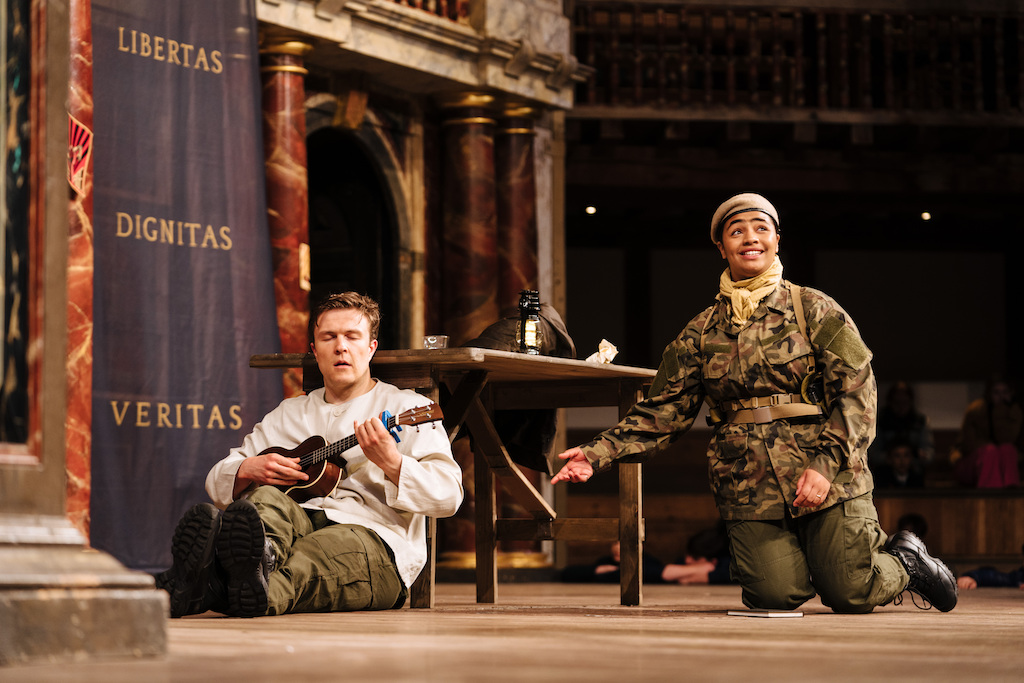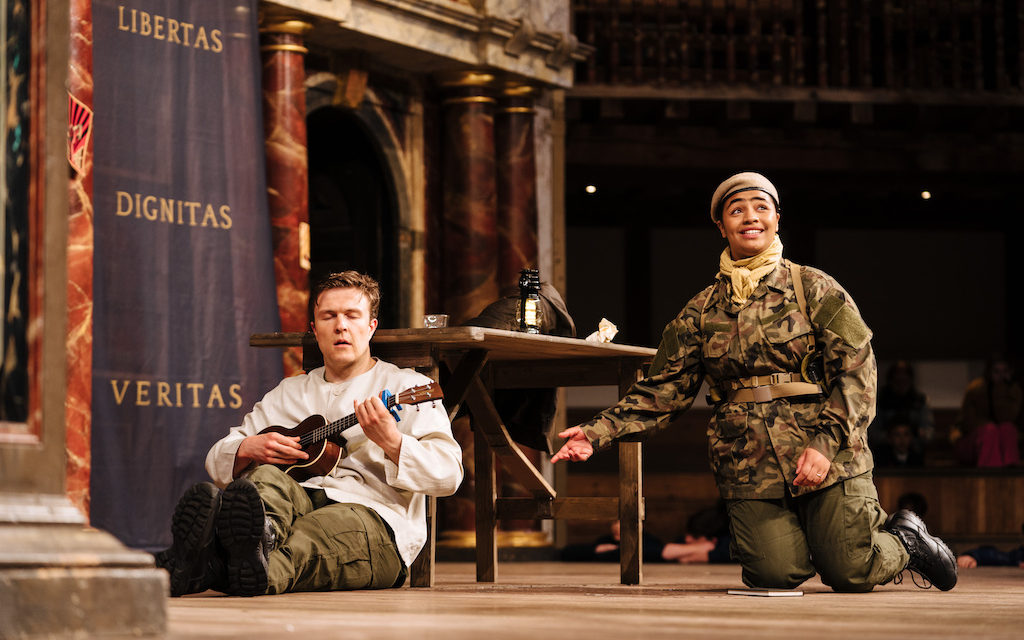
19 – 24 July
Shakespeare’s Globe for the Oxford Playhouse in Magdalen College School Gardens
Shakespeare has become a problem. Our great national dramatist speaks to all ages. Yet his works, particularly the Roman and history plays, are largely peopled by posh white men. There are ways of dealing with this. One is to recast the entire play with women. This can be hugely effective as it was with an outstanding version of this very play at London’s Donmar in 2013. Gender and racially blind casting is another way forward. Or, as has been tried here, the play can be adapted. The latter is the most problematic. Shakespeare’s texts may have been altered in performance and there is no rule against adapting them now. But the resulting version needs to present a coherent and credible world on stage. In that respect, this touring outdoor production from Shakespeare’s Globe begs too many questions.
The design is distinctly Roman; a classical statue on a purple draped platform set against banners spelling out ‘Libertas’, ‘Veritas’ and ‘Dignitas.’ Yet there is nothing Roman about the costumes and, according to a programme note, the play has been given ‘an alternate modern setting. The world we are living in now.’ So far, so confusing. The roles of Brutus and Cassius and of most of the conspirators have been rewritten to be women. Yet despite the necessary changes to the text, there is no suggestion that sexual politics play any part in the plot against Caesar. Class is obviously a feature, and the effect of silken speeches on the plebeian mob does hint at some aspects of modern populism. But to the extent that the production follows the same pattern of social strata as the original, it’s hard to understand the reasoning behind the wide range of accents, particularly in the second half.
Julius Caesar is one of Shakespeare’s fastest moving plays. There is little space for introspection or interlude. And the production, directed by Diane Paige, maintains a good pace throughout. Unfortunately, the vocal projection is often lacking and the language not always well articulated. That said, the four principals are each clear and audible. The funeral speeches from Anna Critchlow as Brutus and Samuel Oatley as Mark Anthony work particularly well. Dickon Tyrell is a compelling and charismatic Caesar with just the right hint of vanity and weakness. And Charlotte Bate brings a touching depth and range of emotion to the role of Cassius.
However, this is not enough to save the show. The battle scenes feel clumsy, and the mixture of small arms and daggers places them in an indeterminate era. Hand to hand combat doesn’t feature in the original, and if it is used, it needs to be convincing.
The significant change to the ending results in the loss of two fine speeches and a surprising shift in the whole balance of the play. This is a Roman play and was conceived as a tragedy. The concept of honour is fundamental. It may be argued that in glorifying honour, the play glorifies violence. But surely the audience can make those links for themselves. That is the beauty of Shakespeare.
★★☆☆☆ Ros Carne, 21st July 2022
Photo credit: Helen Murray


